Wisconsin's small total property tax rise for 2021 obscures local variations
A report issued by the Wisconsin Policy Forum found that the impacts of school referendums and local-level housing booms helped push bills marginally higher despite a budget intended to lower the levy.
By Zac Schultz
December 16, 2021
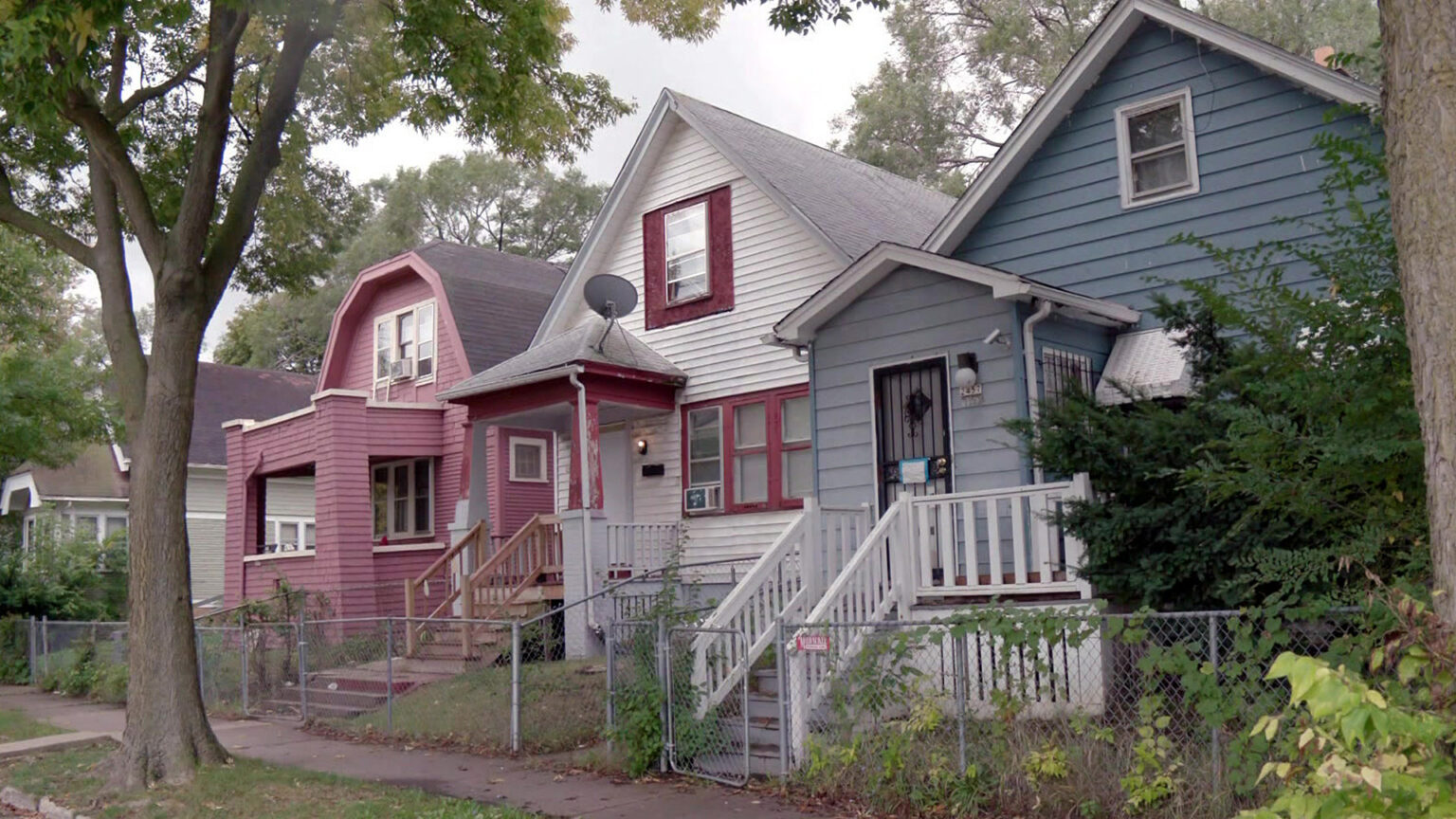
(Credit: PBS Wisconsin)
Property tax bills are arriving in mailboxes across Wisconsin as the year ends, and most homeowners can expect to see a very slight increase compared to the previous year. That’s according to a December 2021 report issued by the Wisconsin Policy Forum, a nonpartisan group that conducts public policy research. Its analysis shows an increase in overall property taxes for Wisconsin’s K-12 school districts of just 0.3%, from $5.38 to $5.40 billion.
The group calls the projected increase a surprise. Jason Stein, its research director, said the state budget passed in July was designed to hold taxes in check.
“Republican lawmakers and Democratic Gov. Tony Evers did two things: They put a large increase in state aid to schools and did not increase revenue limits. You would have expected, once upon a time, that would have lowered K-12 taxes across the state,” Stein said. “Instead they went up, not by very much.”
Ari Brown, a researcher with the group, said the main reason for the increase is the impact of school referendums approved by voters in local school districts.
“K-12 taxes are the largest grouping of your overall property tax bill, so how K-12 goes the overall picture is going to go,” he said.
Brown estimated public schools represent between 40-45% of the average property tax bill in Wisconsin. Other taxing jurisdictions include county governments, technical colleges, municipalities (town, village or city) and some specialty tax districts like sanitary or lake management districts. The analysis was completed without data on municipal property taxes, but Stein said they did not expect that exclusion to impact the overall tax picture because local revenue limits were kept in place by the Republican majority in the state Legislature.
The Wisconsin Policy Forum analysis also showed property tax levies for counties will rise by 2.3% statewide in 2021, similar to the increase from 2019 to 2020. Meanwhile, levies for Wisconsin’s 16 technical colleges will fall by 3.4% due to additional state aid dollars.
The analysis was also completed before accounting for any state property tax credits, which are designed to lower tax bills.
While the report looked at the statewide picture, Brown stressed actual tax bills will vary depending on where people live.
“At the statewide average level, things will look very different depending on where you live — did your school district pass a referendum, do you live in a high growth area,” Brown said.
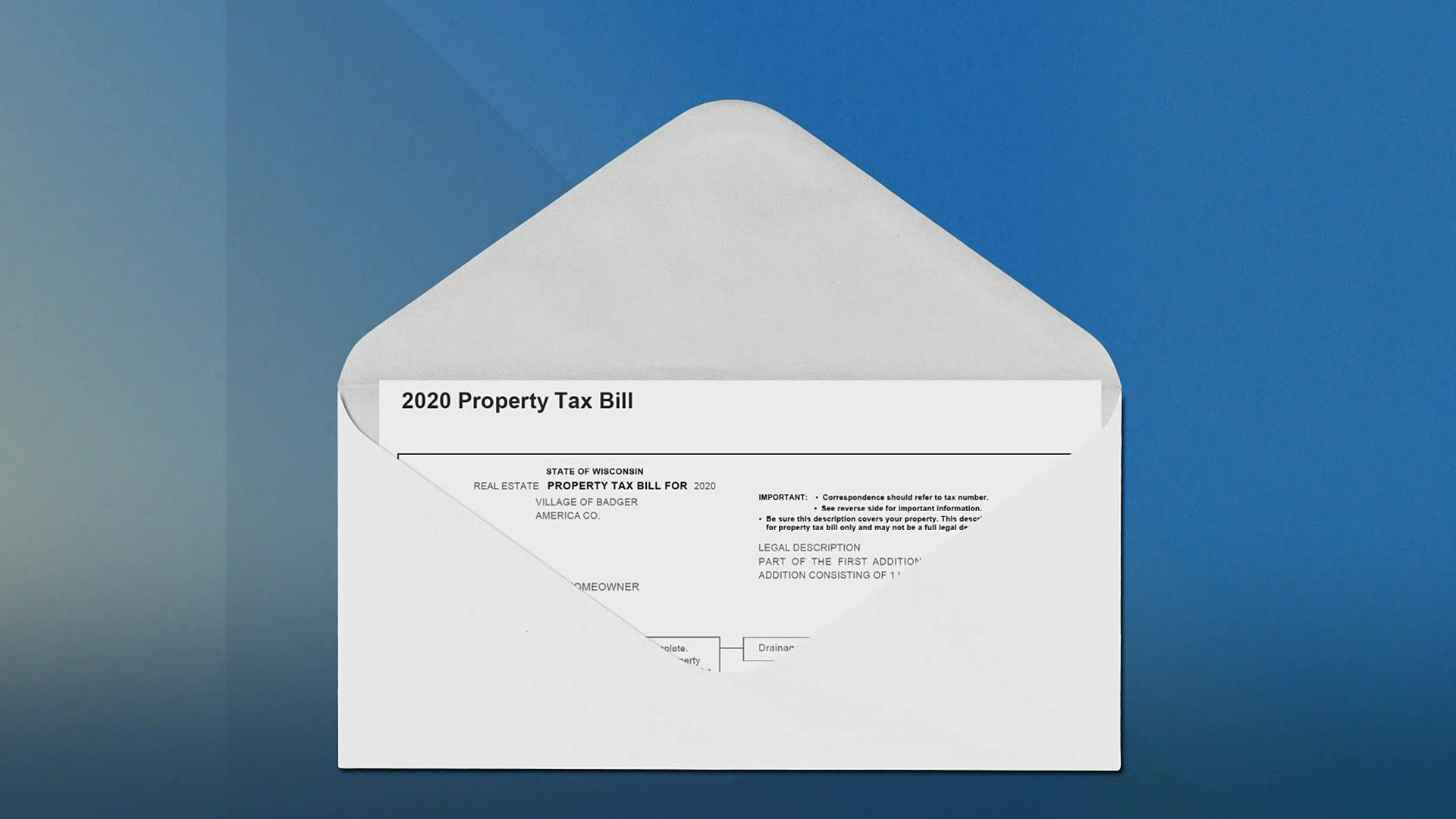
Public school account for over two-fifths of the average property tax bill in Wisconsin. (Credit: PBS Wisconsin)
Some property taxpayers could actually see a decrease in their bill.
The state budget continued a freeze on the ability of local governments to increase their property tax levy, so the only increase can come from voter approval through a referendum or with new construction. Brown said while school districts increased their levy limits by only .35% statewide, the change in equalized value for all property rose by 6.6%. That means many taxing districts had to lower their mill rate, the amount per thousand dollars of valuation each taxpayer is charged. Statewide, Brown said there was a 5.9% decrease in the mill rate, meaning if the assessed value of a home didn’t increase, its tax bill would go down.
In fact, the housing boom during the COVID-19 pandemic likely played a part in boosting the amount of property taxes levied by at least two counties in Wisconsin.
The Wisconsin Policy Forum report showed average county levies increased by 2.3%, but one county in northwest Wisconsin and another in the center of the state saw much larger increases. In Burnett County, the levy grew by 19%, a jump nearly matched by a levy increase of 18,8% in Juneau County.
Stein said these counties have relatively small tax levies to begin with, so any increase will look like a larger percentage.
“When you see a real big change, it tends to be a smaller district or municipality,” he said. “You can have more things happen there.”
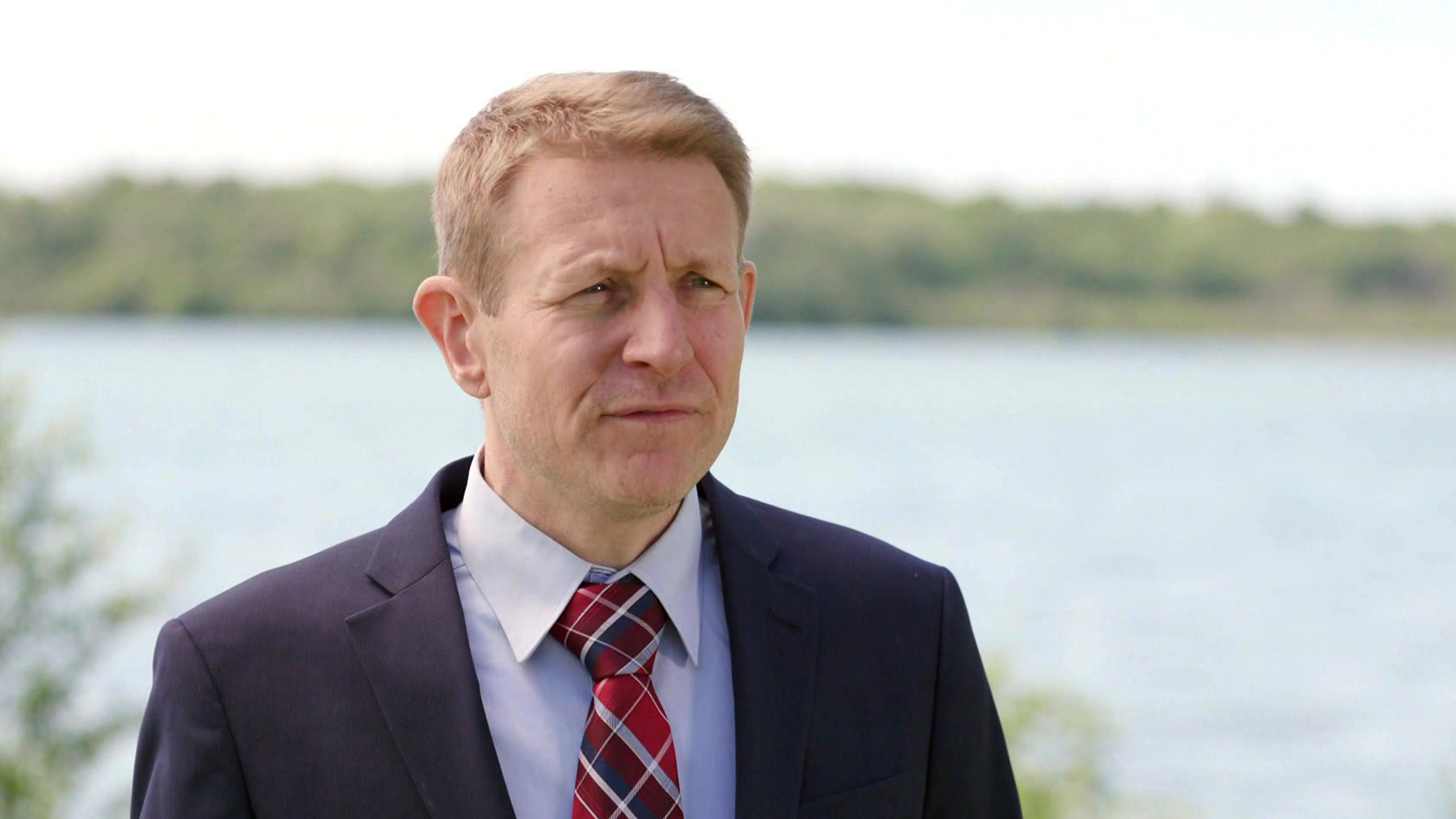
Jason Stein, research director for the Wisconsin Policy Forum, notes that the 2021-23 budget was designed to lower property tax bills in the state. (Credit: PBS Wisconsin)
Ed Peterson is a Burnett County Board supervisor and is vice chair of its administration committee. He said the levy increase is almost entirely due to the increase in home values.
“A lot of high-end homes were built on the lakes,” he said. “They have been building big homes, but for some reason they’re getting even bigger. I would have thought with the increase in the price of lumber the market would have crashed, but home construction is booked out for the next two years.” (Lumber hit record price levels in 2021 as home construction and renovation spiked during the pandemic.)
Peterson said the jump in revenue took him by surprise when the numbers first came in, but the result was no property tax increase for homeowners who did not buy or sell their home in the last year.
Juneau County also saw new home construction add to its property tax levy. Lynn Willard is a Juneau County Board supervisor and a member of its executive committee.
“We’ve got a considerable amount of new building by Castle Rock Lake — vacations homes. There’s a developer who’s going gung ho, tearing down old homes and putting up new ones,” she said.
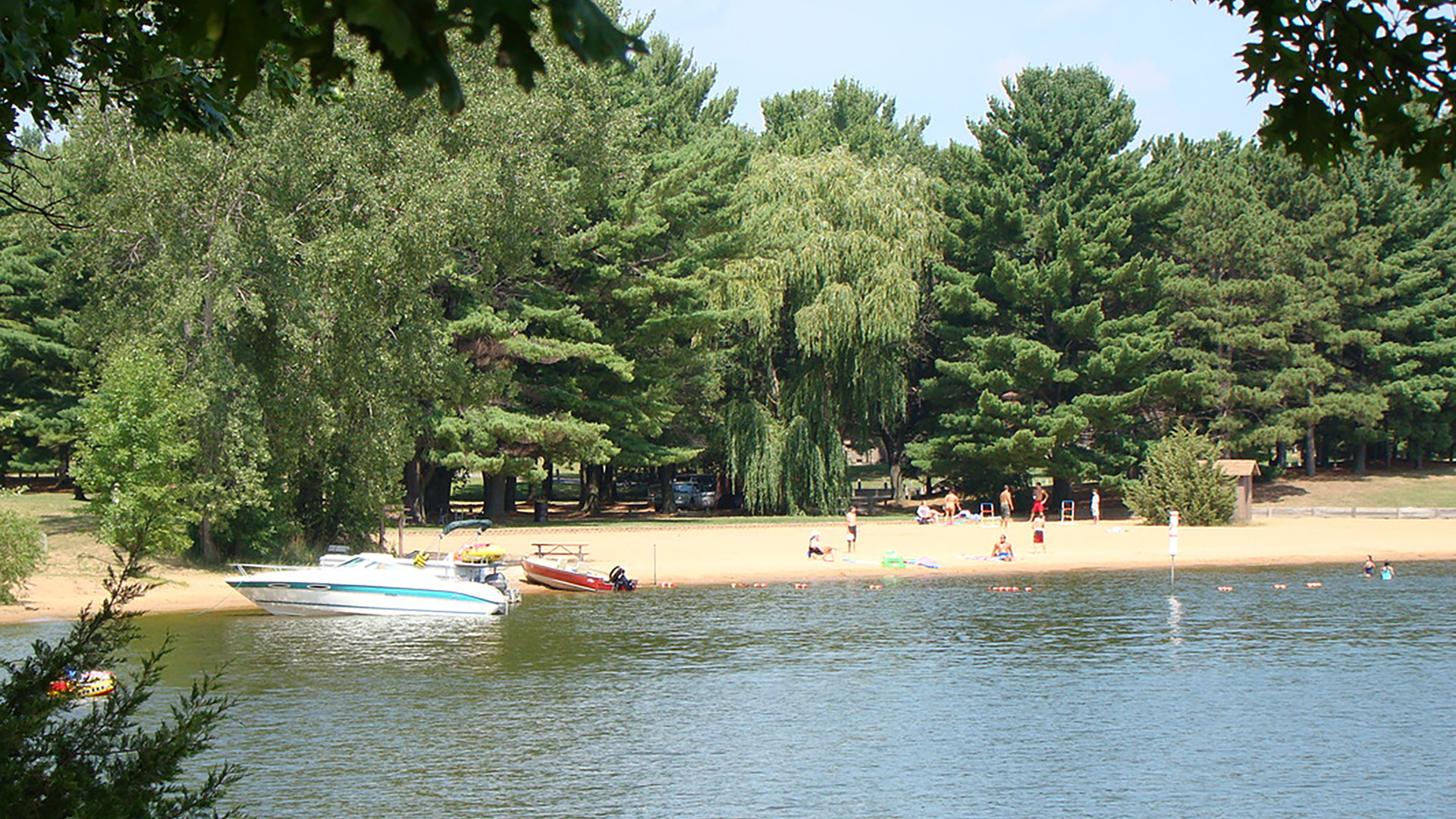
Sun and sand at Juneau County Castle Rock Park near Mauston attracts people to a beach. Home construction along the shores of Castle Rock Lake in central Wisconsin was a factor in its comparatively large property tax levy increase in 2021. (Credit: Courtesy of Juneau County)
But Willard said that construction didn’t account for all of the levy increase. The county also took advantage of a state law that allows it to take out loans for large projects.
“We needed to buy new highway equipment — snowplows and things like that,” she said. “We borrowed a considerable amount of money to pay for it.”
The pandemic affected property tax bills in more ways than just the housing boom. Federal pandemic relief brought in billions of dollars to state and local governments, and that was one reason Republicans in the Wisconsin Legislature refused to increase per pupil revenue limits for school districts or state aid to local governments.
However, Stein said there’s a danger to how that one-time money was used.
“If they spend it on ongoing expenses, it sets them up for a big fiscal cliff later on,” he said.
 Passport
Passport








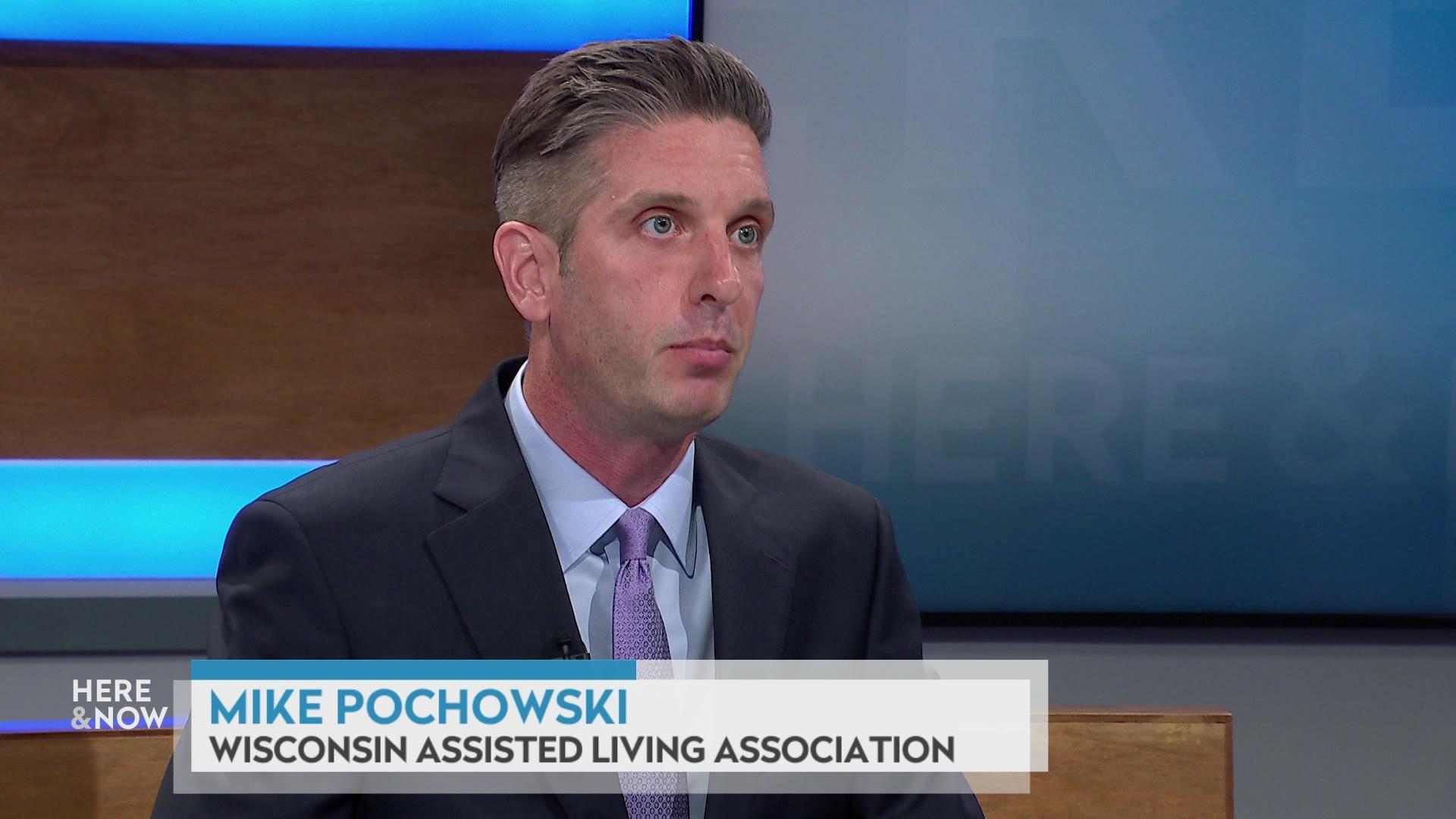


Follow Us